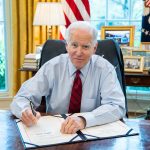In a clash between North Carolina’s Democratic Governor Roy Cooper and the state’s GOP-controlled General Assembly, Governor Cooper vetoed a Republican-backed bill that would have made significant changes to the state’s election laws. The bill, known as Senate Bill 747, aimed to modify the rules surrounding absentee voting and same-day registration.
In a video message, Governor Cooper accused legislative Republicans of launching an “all-out assault on the right to vote” and claimed their motives were solely focused on gaining and maintaining power. He specifically criticized the provisions of the bill that would reduce the grace period for the receipt of absentee ballots and impose stricter requirements for same-day registrants, arguing that these changes would disproportionately affect young and minority voters.
North Carolina Governor Vetoes GOP Election Bill, Setting Up Override Clashhttps://t.co/X0tgx1gjUH
— Dr. Gerald Fox (@drgerryF) August 25, 2023
Not stopping at one veto, Governor Cooper also vowed to reject another elections-related bill, Senate Bill 749, if it lands on his desk. This second piece of legislation would alter the power dynamics of the state’s elections board, shifting the authority to select board members from the governor to the legislature and establishing an equal number of Republicans and Democrats on the board.
Republicans, on the other hand, contend that the proposed bills would enhance election security and protect against fraud. State Senator Warren Daniel, a Republican from Burke County, argued that they are striving to establish a secure election system that both facilitates voting and upholds integrity, while criticizing Governor Cooper’s desire to have “handpicked partisans” oversee elections.
With Republicans wielding a veto-proof supermajority in the state’s legislature, it is highly probable that they will override Governor Cooper’s veto. If enacted, the changes outlined in these election bills would likely take effect in early 2024, just in time for both the presidential race and local elections throughout the Tar Heel state.
As tensions rise and the battle over election integrity continues, North Carolina is poised to become a key battleground for the upcoming elections. Though Governor Cooper will not be on the ballot due to term limits, races for governor, Congress, the General Assembly, and various state and local offices will be contested. Both sides will be vying for victory and working tirelessly to rally support from voters as the time to cast their ballots draws nearer.




